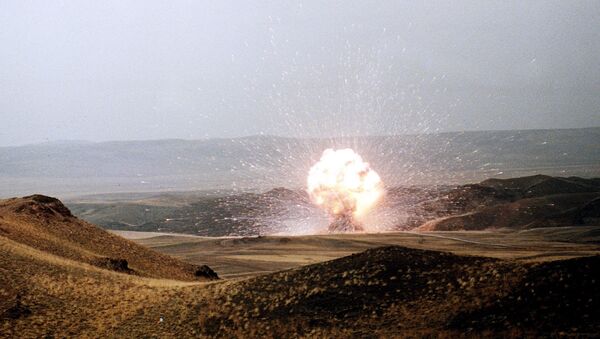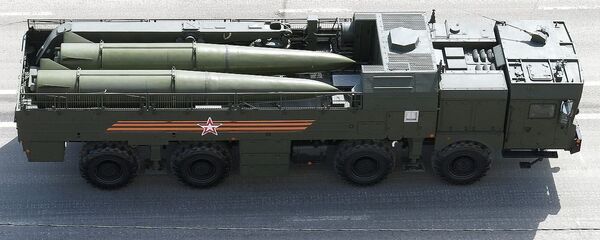"I have spoken to my Russian colleague about it and told him we're banking on Russia correcting its violations of the treaty and disarming its cruise missiles so that the INF treaty still has a chance", Maas said.
The minister went on saying that he would discuss in Washington the situation around the Intermediate-Range Nuclear Forces (INF) Treaty, adding that Moscow should reduce the controversial cruise missiles.
"In Washington, I will also talk about the INF Treaty. Moscow should now, having provided transparency, reduce the prohibited cruise missiles," Maas said.
He said in case the INF Treaty was terminated, it would be necessary to continue close security coordination within NATO.
Shortly before that, Russian Deputy Foreign Minister Sergei Ryabkov said that Washington had informed Moscow via diplomatic channels that the country's decision to withdraw from the Intermediate-Range Nuclear Forces Treaty was final.
READ MORE: Russia Suspects US Tests Short-, Medium-Range Missile Tech Under Guise of Drills
Last year US President Donald Trump accused Moscow of violating the treaty and vowed to leave it, however, without specifying any dates. Two months later US Secretary of State Mike Pompeo announced that Washington would suspend its adherence to the accord within 60 days unless Russia returns to full compliance with the agreement.
READ MORE: INF Treaty US Abrogation: Chance of New Arms Race is Very Likely — Scholar
Moscow has repeatedly denied the allegations, emphasising that Washington, in turn, was deploying launchers for Tomahawk cruise missiles in Eastern Europe, which is prohibited by the treaty.
READ MORE: Moscow Warns UNGA Rejection of Resolution on INF Treaty Damages Int'l Security



